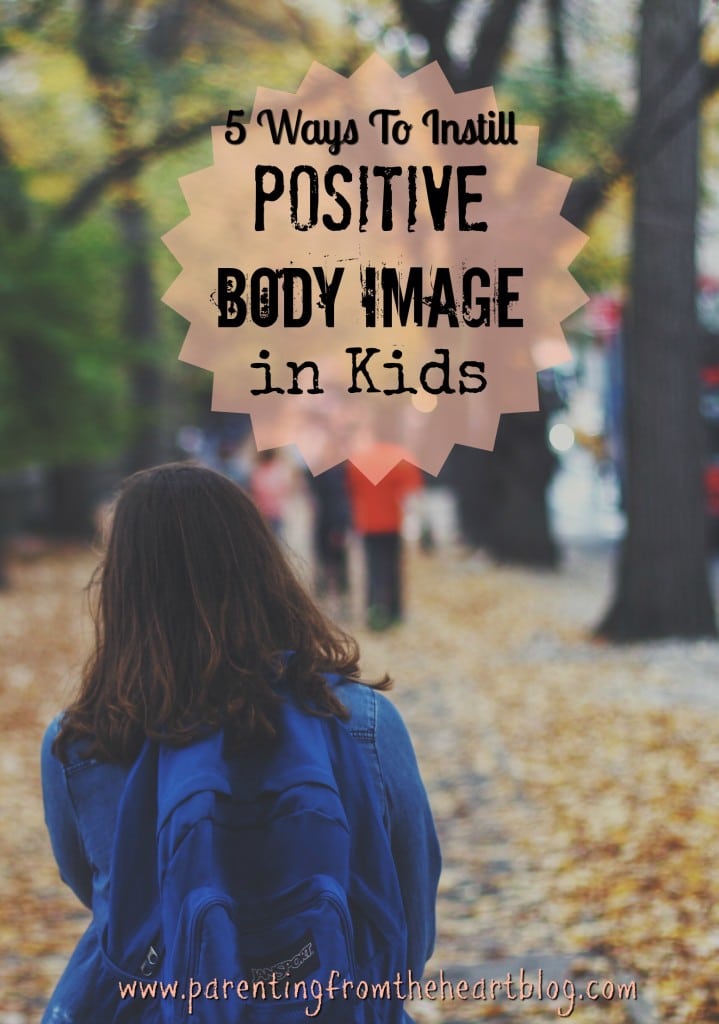When I entered into the world of parenting, I anticipated outside influences would make their way into their…
When I entered into the world of parenting, I anticipated outside influences would make their way into their home. I did. I just thought it would take a bit longer. Actually, I hoped it would take a lot longer. Ya sure, we’ve had some potty humour reported back to us from the preschool classroom thanks to our tattle-tailing three-year-old, “A boy in my class said [insert any hybrid of rude words here].” But that’s been about it. Until the other night…
We were getting ready for bed. As my little girl was getting undressed, she looked down at herself and then at me. Her big eyes were especially wide, “Mama, am I skinny?” she earnestly asked.
The question winded me.
Don’t get me wrong, I foresaw this question coming well before I became a parent. I was a teenage girl who was both grateful that I was skinny and regularly worried if my perceived worth was contingent on my dress size. Since my teens, I’ve thought and re-thought out how I could instill in my future daughter(s) a spirit of resiliency against the superficial standards we are inundated with every. single. day. But this was too soon for my sweet daughter to be evaluating herself and using such a word. She just turned four a couple of weeks ago.
I scrambled for a response and a tone that masked my fear and uncertainty. “What does skinny mean, honey?” Her self-reflection switch gears as she admitted, “I don’t know.” “Well,” I gulped, “skinny is a bit of a funny way to describe someone. A better thing to say is that someone is beautiful, nice, or smart. And you are beautiful, smart, and very special to me.” I felt concerned by the exchange but thought we had temporarily side-stepped a landmine.
Two days later, we were in the car en route to school when I realized that was not the case. My ignorant oblivion was pierced with her naive tone, “Why do people want to be skinny, Mama?” This time, I had the wherewithal to ask where she had heard the term. She shared that a friend at school had talked about wanting to be skinny and then proceeded to ask if trees were skinny, grass was skinny and basically named everything she saw out her window. I encouraged this tangent. After dropping my girl off at school, I had a moment where I felt incredibly sad and vulnerable. You see, these two incidences were the only time either of my kids had asked about physical appearance. And the term she was asking about is one laden with connotations and health implications. According to a study conducted by the Hospital for Sick Kids in Toronto, as many as one-third of girls ages 10-14 are dieting. And, the National Eating Disorders Association found that between 40 and 60% of elementary school girls are concerned about their weight. After I gathered myself up from a state of immense vulnerability, I started to generate a plan of attack to help combat any emphasis on weight and promote positive body image in young children.

Stop making disparaging comments about my own body: I never say anything disparaging to my kids about myself. But I do joke with my husband about my postpartum body when the kids are within earshot. This is stopping now. I don’t want the example I set to be that it’s okay to rip yourself apart. Furthermore, in reading about this topic, I unsurprisingly found daughters witnessing their mothers’ attitudes towards their own bodies has a huge impact on body image in young children.
Celebrate their strengths: I love my kids’ different aptitudes, personality traits, and interests. And am, I’m using this opportunity as a reminder to continue to celebrate their accomplishments.
Educate them on health and wellness: Empowering my children to know what makes them healthy will help them maintain a healthy body weight and feel in control of their overall health.
Avoid fat and skinny talk: Though my little girl admits to hearing the word skinny from a friend at school, she could have just as easily heard me using the term evaluating a model on TV, reflecting on a past picture of myself, or in some other context. From this point forward, I’m going to do my utmost to ban the use of fat and skinny when referring to anyone in any context.
Be active: Based on sport psychological research, exercise improves mood, decreases stress, increases pride in physical accomplishments, improves body image, and increases feelings of satisfaction in oneself.
I know I’ve only just begun on this quest to promote positive body image in my kids, but it will always be a priority.
How do you promote positive body image in your own kids? I’d love to hear your suggestions!
Being a teenager is like standing on a bridge between childhood and adulthood. It’s exhilarating, confusing, lonely, and…
You know, growing up isn’t a cakewalk. We all face those bumps and hitches that shape us into…
Ever caught yourself nudging a rogue pea back into its lane, even though you’re decades past the kids’…